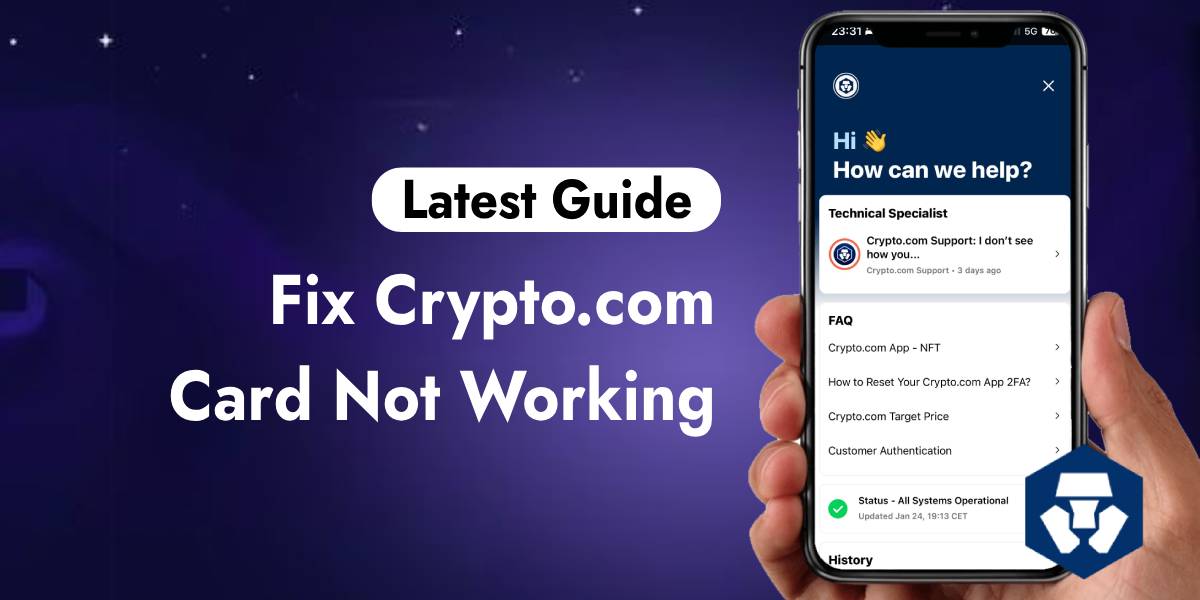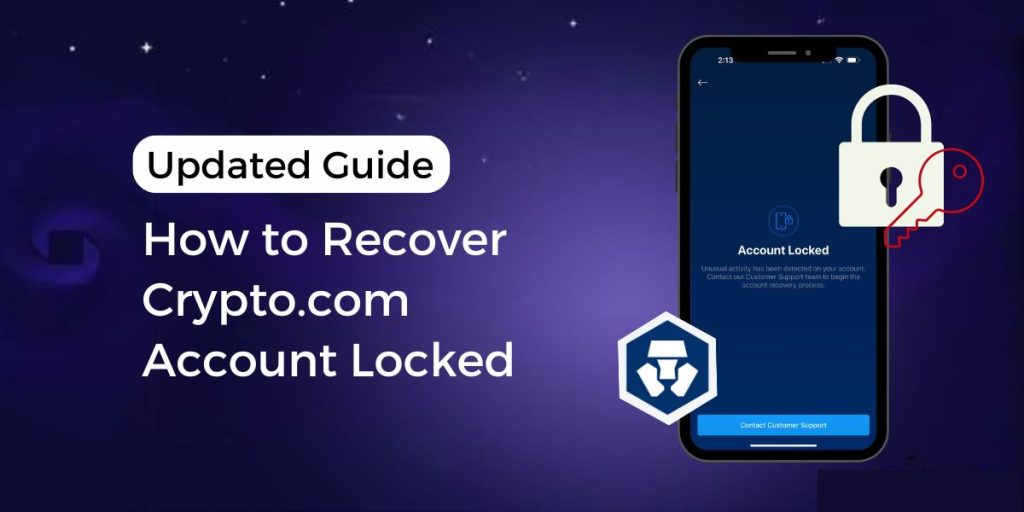If you’ve ever faced a frustrating moment at the checkout with your Crypto.com card not working, you’re not alone. One of the most common issues users experience is the dreaded ‘Declined by Issuer’ error message. This issue can pop up whether you’re shopping online, withdrawing cash, or trying to pay at a physical terminal. But don’t worry—this blog will guide you step-by-step on how to resolve it effectively.
Understanding the ‘Declined by Issuer’ Error
When your Crypto.com card is not working and the error message says ‘Declined by Issuer’, it typically means the transaction has been blocked by the bank or payment network that issued the card. While the exact reason can vary, it usually relates to account restrictions, security flags, or card limitations.
Unlike regular debit or credit cards, Crypto.com cards are prepaid Visa cards linked to your crypto account, and they come with a different set of rules. Understanding those rules is the first step in resolving issues like this.
Common Reasons Why Your Crypto.com Card Is Not Working
Let’s look at some of the most likely reasons behind the Crypto.com card not working error, specifically the ‘Declined by Issuer’ message.
1. Insufficient Fiat Balance
Crypto.com cards use fiat currency (USD, EUR, etc.) that must be preloaded. If your card has a zero balance or you’ve only stored crypto in your wallet, the card will be declined.
2. Incorrect Payment Mode
Not all merchants accept prepaid Visa cards. If the point-of-sale system or online platform doesn’t accept prepaid cards, your transaction may be declined.
3. Geographical Restrictions
Your card might be blocked from use in certain countries. For example, trying to use your card in a country not supported by Crypto.com’s card program can result in the Crypto.com card not working.
4. Blocked Merchant Category Codes (MCC)
Some merchant categories like gambling, crypto purchases, and gift cards may be restricted. If you’re trying to transact in one of these categories, the transaction may be flagged and blocked.
5. Suspicious or High-Risk Activity
Crypto.com’s issuer might block your card due to security concerns such as large purchases, multiple rapid transactions, or unusual location usage.
6. Expired or Frozen Card
If your Crypto.com card has expired or your account is under review or frozen, it will naturally be declined.
Steps to Fix ‘Declined by Issuer’ Crypto.com Card Error
Here are detailed solutions to fix the issue of your Crypto.com card not working due to a ‘Declined by Issuer’ error.
Step 1: Check Your Fiat Balance
Ensure that your Crypto.com card has sufficient fiat currency loaded onto it. You can convert crypto to fiat and top up your card directly from the Crypto.com app:
- Go to Card > Top Up
- Choose the source (Crypto Wallet, Fiat Wallet, or Credit/Debit Card)
- Confirm the amount and complete the transaction
Step 2: Update the App
Outdated app versions may not sync correctly with your card status. Always keep the Crypto.com app updated to the latest version available on the Play Store or App Store.
Step 3: Enable International Use (if applicable)
If you’re traveling or trying to make a purchase outside your region, go to your card settings in the app and enable international usage.
Step 4: Contact Support
If you’ve tried everything and still find your Crypto.com card not working, get in touch with their support team:
- Open the Crypto.com app
- Go to Settings > Help Center > Chat
- Explain the situation and provide transaction details
They may unblock the card or let you know the exact reason for the decline.
Step 5: Use a Different Payment Method Temporarily
While the issue is being resolved, use an alternate method such as a different debit/credit card, bank transfer, or Apple/Google Pay if linked. Also, you can check for Fix Crypto.com Withdrawal Failed, if you still facing error.
Step 6: Verify Card Status
Go to the app and check the status of your card under the “Card” section. If it’s shown as inactive, expired, or blocked, you may need to request a replacement.
Preventing Future Issues with Your Crypto.com Card
To avoid facing the Crypto.com card not working error in the future, follow these simple tips:
- Always maintain a fiat balance on your card.
- Avoid restricted merchant categories like gambling and gift cards.
- Enable transaction alerts in the app to stay on top of your usage.
- Regularly check the card’s validity and settings.
- Verify your identity (KYC) and keep your account in good standing.
FAQs About Crypto.com Card Not Working
Why is my Crypto.com card being declined at ATMs?
Your card may be declined at ATMs due to low balance, unsupported ATM networks, or regional restrictions. Make sure your card is funded with fiat and try using a Visa-compatible ATM.
Can I use my Crypto.com card for online purchases?
Yes, you can, but only with merchants that accept prepaid Visa cards. Ensure that your billing information matches what’s on your Crypto.com account.
What should I do if I’ve topped up but the card is still not working?
If your card is topped up but still not working, try logging out and back into the app, ensure you’re using the latest version, and check if the card is active. If the issue persists, contact Crypto.com support.
How long does it take for funds to appear on my card after top-up?
Fiat transfers from your Crypto Wallet or Fiat Wallet are usually instant. However, external card top-ups can take a few minutes to process.
Final Thoughts
Having your Crypto.com card not working can be frustrating, especially when faced with the ‘Declined by Issuer’ error. However, most of the time, it’s a fixable issue—often related to fiat balance, merchant restrictions, or regional settings. By understanding how the Crypto.com Visa card functions and proactively managing your account, you can avoid these disruptions and enjoy seamless crypto spending.
Always keep your app updated, follow best practices for security, and don’t hesitate to contact support when things go wrong. With the right approach, your Crypto.com card can remain a reliable financial tool in the evolving world of crypto payments.ending anytime.


